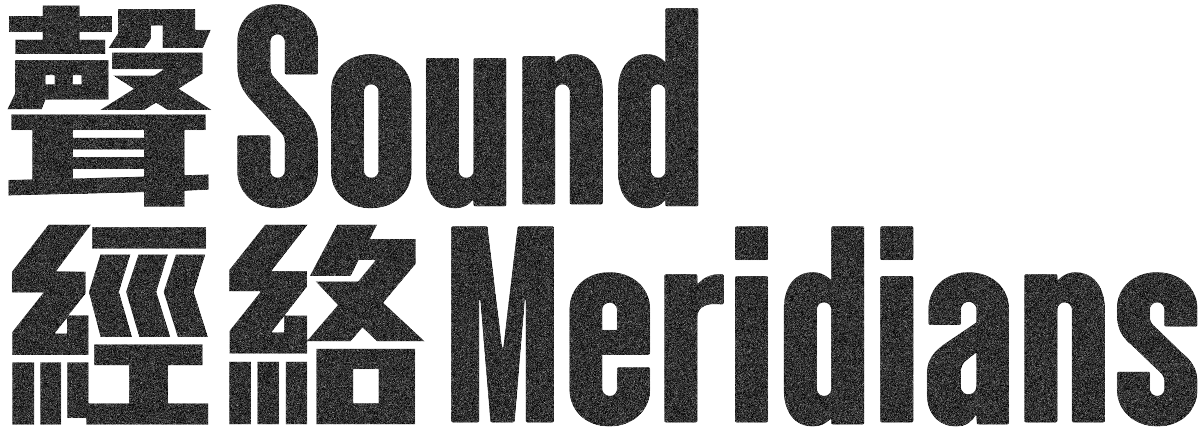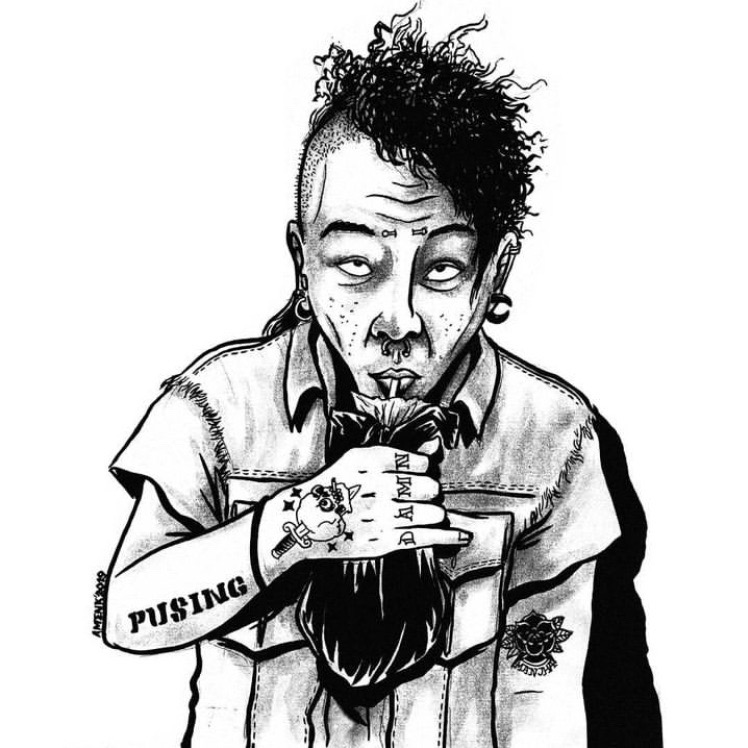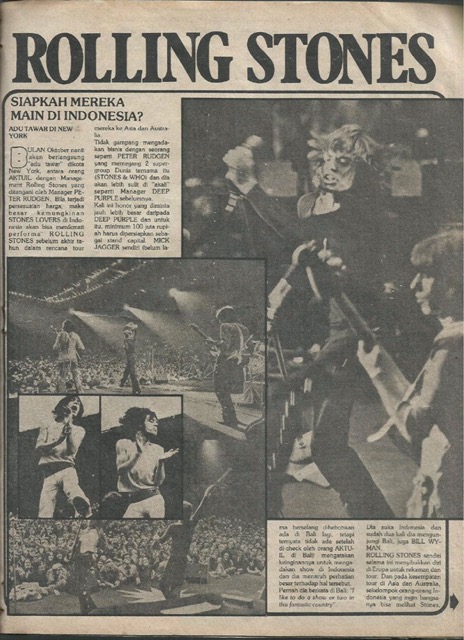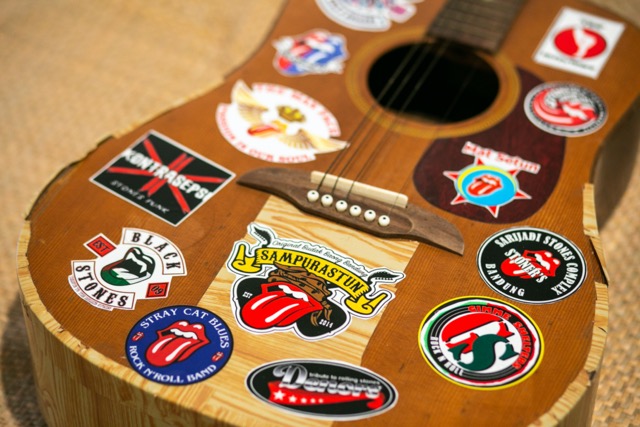
Bale is a social space that is easily found in Indonesian settlements, including in Bandung, especially in the era before the 2000s. Usually Bale is used as a place for deliberation, patrolling, and a place for young people to hang out. The activities are chatting, drinking coffee, sometimes alcohol, while...
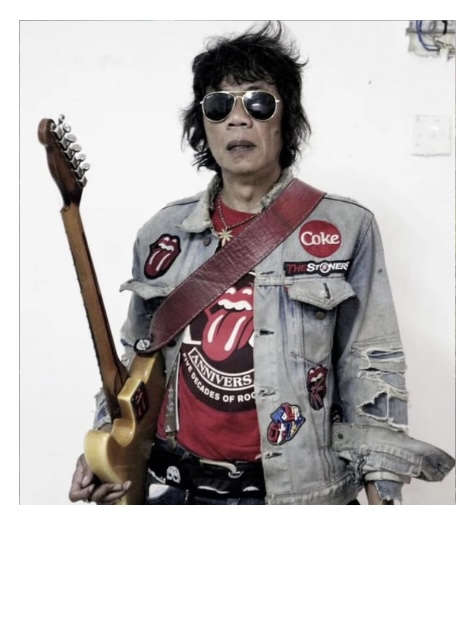
The Rolling Stones, especially Jagger and Richards, who are associated as symbols of rebellion and danger, are translated into other forms in non-music fields. For example, hooliganism in football, where The Rolling Stones symbol is often displayed in the stadium to show unity and courage in supporting the Bandung football...
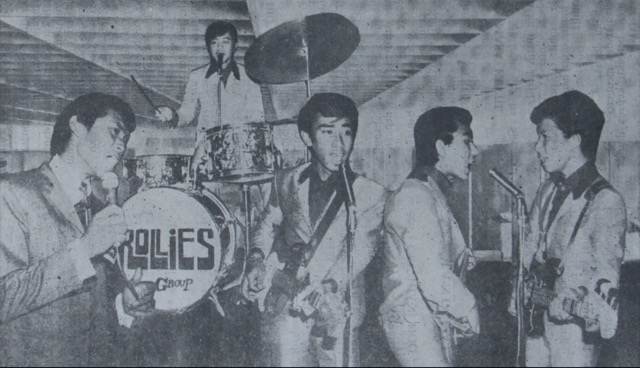
The popularity of The Rolling Stones in the public translated by local performers created a new translation of The Rolling Stones. From the 1970s to the 1990s, local bands covered The Rolling Stones songs or were inspired by them. This ecosystem was supported by the media, especially Aktuil and Generasi...
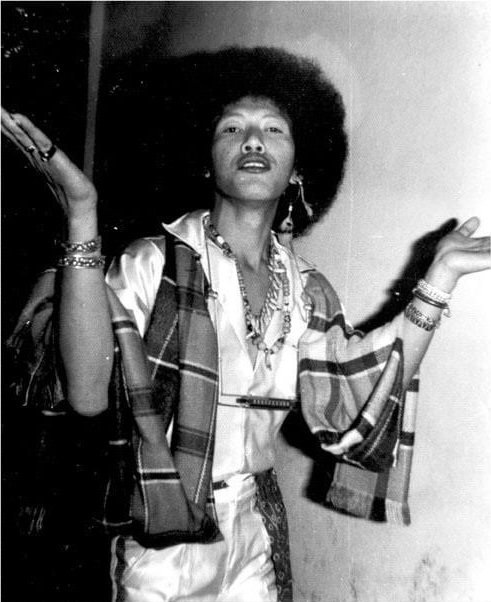
In Bandung during the 1970s, “Jagger”(pronounced jeger) became a term for a local rock star known for his wild music, stage act, and lifestyle. The most famous local Jagger of the era was Deddy Stanzah (1949-2001), a founder of The Rollies (1965), Superkid (1976), and many other music projects. However,...
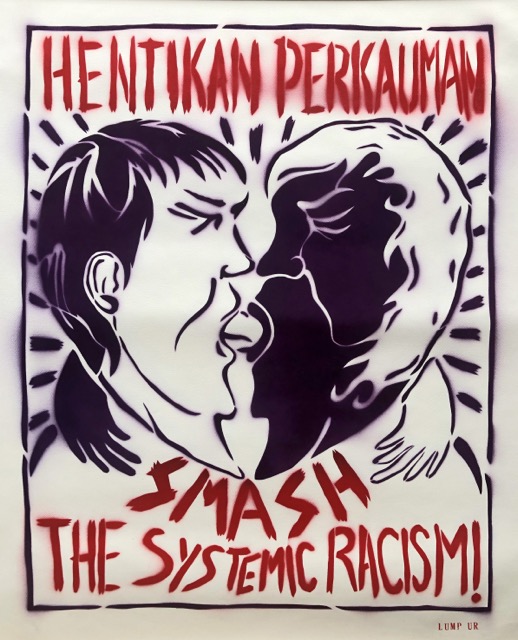
Poodien’s street stencil works are born from an awareness of racism, first sparked by the punk subculture which offered the alternative knowledge missing from public schools. He emphasizes that racism is not mere individual hatred, but a systemic and structural force deeply embedded in post-colonial laws and power frameworks. His...

Music subcultures and countercultures have always been scapegoated by politicians in Malaysia for political mileage since the early 1970s. The formula of conjuring mediated moral panics that puts the sole blame of Malaysian society’s ills on rock bands and rock culture has been so commonplace and successful that this trend...
